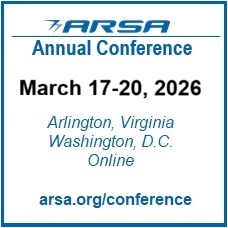Freedom of Information Act (FOIA)
The Freedom of Information Act (FOIA) was first enacted in 1966, and remains an important piece of legislation protecting our right to information from the federal government. The law promotes transparent governance by allowing access to federal agency records. To obtain those records any person may submit a request, and FOIA outlines the process by which those requests are handled.
Who can submit a FOIA request?
“Any person” – regardless of citizenship, “person” includes individuals, corporations, associations, state and local governments, foreign governments, etc.
What records are subject to FOIA?
- Agency records (NOTE: agencies are not required to research, analyze, or create records; they merely are required to provide existing records.)
- Exemptions – Information falling into the following exemption categories are protected from disclosure:
- Exemption 1: National Security Information
- Exemption 2: Internal Personnel Rules and Practices
- Exemption 3: Information exempt under other laws
- Exemption 4: Confidential Business Information
- Exemption 5: Inter or intra agency communication that is subject to privilege
- Exemption 6: Personal Privacy
- Exemption 7: Law Enforcement Records that implicate certain issues
- Exemption 8: Financial Institutions
- Exemption 9: Geological Information
How to make a request
In writing describing the records being requested in compliance with the agency’s requirement. The Department of Transportation regulations concerning FOIA requests are contained in Title 49 Code of Federal Regulations (CFR) part 7.
To download a document template, click here.
Fees
The requester must pay a fee, unless that fee is waived. The total amount will vary according to the category of the requester.
Fees can be waived if the material “is likely to contribute significantly to public understanding of the operations or activities of government and is not primarily in the commercial interest of the requester.”
- Commercial
- Educational Institution
- Non-Commercial Scientific Institution
- News Media
- Other
Time Frame
The agency must respond within 20 working days. The agency may extend that time limit in “unusual circumstances” by giving the requester written notice, however if the time period is extended beyond 10 working days, the agency is required to allow the requester to narrow the scope of the request, and the agency must make a FOIA Public Liaison available.
Typically “unusual circumstances” applies where the agency has difficulty locating the records; for instance, where the agency must search through a large amount of separate and distinct records, or where it must consult with another agency.
Additionally, the agency may toll the 20-day clock if it is waiting for information from the requester, or if it requires information to clarify a fee assessment issue.
Expedited processing may be requested. An agency may grant expedited processing where there is a compelling need. The agency has 10 calendar days to grant or deny the request for expedition.
The Response Letter
The FOIA response must include:
- Identification of responsive records.
- Volume estimate of information withheld.
- Identification of exemptions asserted.
- Administrative appeal rights.
- Records in any form “if readily reproducible”.
Appeal
Requesters may appeal an agency decision either administratively, where the agency will review its decision, or in federal court, where the burden of proof lies on the agency to demonstrate that no record has been improperly withheld.
Resources
“FOIA” – Department of Justice
49 C.F.R. part 7 – Department of Transportation FOIA regulations
“FOIAonline” – Regulations.gov
“Make a FOIA Request” – Federal Aviation Administration
“FOIA Service Centers,” Federal Aviation Administration
“FOIA” – Department of Transportation
“An Overview of the Freedom of Information Act: Procedural Requirements” – Department of Justice.
“FOIA Basics” – George Washington University.







